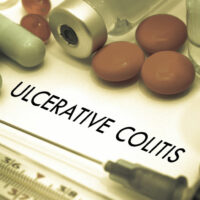
health
Signs and complications of ulcerative colitis
Ulcerative colitis (UC) is an inflammatory bowel disease that affects the innermost lining of the large intestine (colon) and rectum, causing sores, ulcers, and bleeding. Symptoms for this condition generally develop between the ages of 15 and 30 or between 50 to 70. The condition develops in flare-ups and then may disappear for weeks or months at a time. Here are some of the early signs of ulcerative colitis one may observe: Diarrhea One of the early signs of ulcerative colitis that people notice is watery diarrhea combined with a frequent and sudden urge to pass bowel movements. One may feel the need to pass bowel movements up to 10 times a day, and this can significantly affect their daily life. For those living with UC, uncontrollable diarrhea could lead to medical emergencies like severe dehydration, perforated colon, or sepsis. Rectal bleeding Those with UC may also experience blood or mucus in their stools, especially during a flare. This is because the blood from the ulcers reaches the surface of the rectum. One should consult a doctor immediately after observing this symptom. Abdominal and rectal pain People with UC may experience mild-to-severe abdominal or rectal pain. It may also occur in the form of persistent muscle spasms and cramping.















